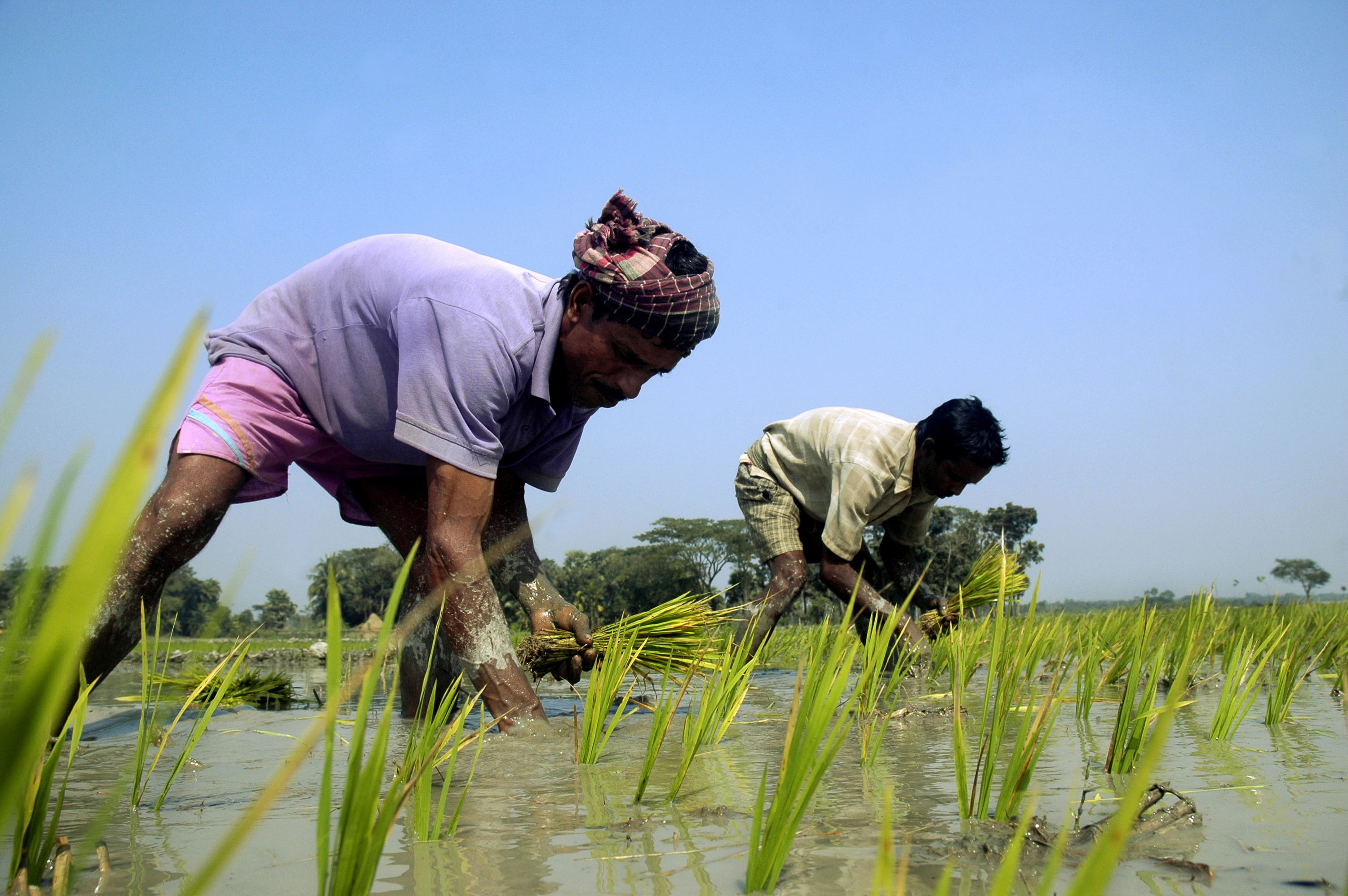Faruque Ahmed
The big Tk 2.22 trillion budget for 2013-14 fiscal year has a big challenge for the government to put in place a good governance system to make sure the proper utilisation of resources to attain the GDP growth target at 7.2 per cent. The new budget is over 17 per cent bigger than the outgoing fiscal 2012-13 and having a deficit of over Tk 55,000 crore.
The budgetary size has witnessed a phenomenal growth over the past several years as the size of the economy is rapidly expanding in arena and umbrella of socio-economic transformation as the country is working to attain a middle-income nation’s status within this decade.
Economists are meanwhile debating on the nation’s growth potentials. Looking at the poor governance level, political violence and a similar poor quality of public expenditure projects, most experts doubt that attaining the 7.2 per cent growth next year may not be possible in the backdrop of 6.03 per cent this year. They have, moreover, questioned finance minister Muhith’s forecast of 8 per cent growth for 2014-15 based on next year’s high side growth target as quite unrealistic.
Economists believe these are only high figures to support the government rhetoric of moving the economy towards the middle-income status, however, without real growth in sight. In fact, the economy failed to cross the 6 per cent growth in the past few years with a visible deceleration of growth that was attained under the previous government.
So the high growth figures as quoted by the finance minister for this year at 6.3 to 6.8 per cent or for next year and beyond may be just wishful figures now at a time when a slow down in the economy is visible at all levels.
Moreover, snatching of tenders by ruling party goons, over-estimation of project cost to benefit party operatives and poor project implementation capacity of government agencies are all but reminders of a nosedive which may in turn leave the growth potentials of the economy underutilised.
Corruption, inefficiency, streets violence and vandalism in an election-year may even cause further deceleration of economic activities this year. But the is not ready to agree to listen to critics such as the CPD which earned the wreath of the minister recently as the think tank made a poor growth forecast, along with voicing scepticism on many other issues such as a 20 per cent growth in revenue targets. Muhith termed CPD’s comments as ‘harmful, bogus and partly hostile.’
This is one side of the criticism of the budget. On the other side, many economists believe that the 7.2 per cent growth target is on the lower side of the potentials that the economy now offers. It is capable to produce 8 per cent growth now provided that the government drastically curb corruption, control misuse of money by political operatives and party goons and ensure efficient implementation of the budget.
Corruption, inefficiency
The World Bank, the Asian Development Bank and such other multilateral agencies believe that corruption and inefficiency alone routinely take away the growth potentials by 1 to 2 per cent every year and as the size of the budget is growing fast, a small percentage of misuse or misappropriation of the budget will mean swindling of a huge sum of money.
So the issue of economic and financial governance is assuming the greater significance as the size of the budget is becoming ever larger. From this perspective, many analysts hold the view that this budget is both ‘overambitious’ in the prevailing context in one hand and also at the ‘lower side of the growth potential’ of the economy on the other. Here the role of the government is crucial to exploit the higher growth potential by ensuring good governance and this is the point where the country is at its worst.
The proposed budget has been criticised for its vulnerability to misuse in the electioneering year. There are many projects without a clearly charted out plan and design for implementation. There are many lump sum allocations without clearly laid out expenditure plan. The allocation of Tk 6850 crore against Padma Bridge is critically viewed by analysts as there is no clearly charted out master plans and plans for work components for which this money may be used and critics fear much of it may go to the ruling party electioneering campaign.
The communication sector is having 23 per cent of the entire development budget and most money may end up at field level activities which can’t be properly measured in rainy season.
DCCI on whitening black money
In contrast to that, the budget is indifferent to promote the productive sector of the economy and also support business. The Dhaka Chamber of Commerce and Industry (DCCI) has severely criticised the budget questioning the finance minister’s permission to allow the whitening of black money in real estate. The chamber leaders said real estate sector has turned highly speculative and this permission will only tend to increase the cost of land and flats making the buying of a home highly expensive.
On the other hand, the chamber leaders said, by allowing this money in industrial investment, the government could help expand the production base of the economy to generate more jobs and income for the common people. Whitening black money in real estate only shows that the government is committed to supporting vested interest groups instead of extending support to the real sector of the economy.
The DCCI is working on a scheme to create 200 new investors in the current fiscal and chamber leaders said the budget remained quite indifferent to such business target at national level.
They have also criticised the target of Tk 25,993 crore borrowing from banks next year saying it may ultimately end up beyond Tk30,000 crore, if this year’s experience is of any lesson.
The government turned towards more domestic borrowing, especially from banks because it could achieve only part of the loan target for this year from donors. But the government concentration on bank borrowing is only marginalising the private investment and this in turn is only slowing the pace of private sector’s growth. It happened this year and will only accelerate next year.
The budget has drastically failed to put forward a balanced growth proposition, besides having no in-built governance system to ensure achieving the major budgetary goals and their implementation, and on top of it reigning in the pervasive spread of corruption at all levels. In the election year, the huge budget is more vulnerable to political exploit, analysts say in this connection.
Source: Weekly Holiday









